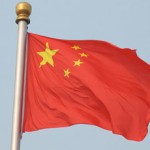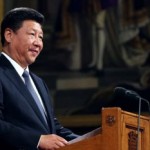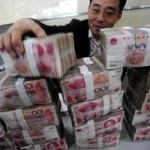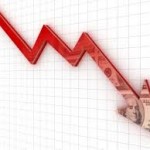Piketty with Chinese Characteristics

In his bestselling book Capital in the Twenty-First Century, Thomas Piketty argues that capitalism aggravates inequality through several mechanisms, all of which are based on the notion that r (the return on capital) falls less quickly than g (growth in income). While debate about Piketty’s work has focused largely on the advanced economies, this fundamental concept fits China’s recent experience, and thus merits closer examination.
Of course, a large share of China’s population has gained from three decades of unprecedentedly rapid GDP growth. The fixed-capital investments that have formed the basis of China’s growth model largely have benefited the entire economy; infrastructure improvements, for example, have enabled the rural poor to increase their productivity and incomes.
As the investment rate rose to almost half of GDP, the share of consumption fell to as little as a third. The government, recognizing the need to rebalance growth, began to raise the minimum wage in 2011 at nearly double the rate of real GDP growth, ensuring that the average household had more disposable income to spend.
But property prices have risen faster than wages and profits in manufacturing, causing the return on capital for a select few real-estate owners to grow faster than China’s GDP. The same group has also benefited from the leverage implied by strong credit growth. As a result, China’s top 1% income earners are accumulating wealth significantly faster than their counterparts in the rest of the world – and far faster than the average Chinese.
In fact, while the rise of China and other emerging economies has reduced inequality among countries, domestic inequality has risen almost everywhere. The Piketty framework highlights several drivers of this trend.
For starters, by lowering trade and investment barriers, globalization has created a sort of winner-take-all environment, in which the most technologically advanced actors have gained market share through economies of scale. In particular, as the global economy moves toward knowledge-based value creation, a few innovators in global branding, high-technology, and creative industries win big, with the global boom in tech stocks augmenting their gains.
The resulting concentration of revenue, wealth, and power undermines systemic stability by creating too-big-to-fail entities, while hampering smaller players’ ability to compete. The global financial system reinforces this concentration, with negative real interest rates promoting financial repression on household savings. Given that banks prefer lending to larger enterprises and borrowers with collateral, small and medium-size enterprises struggle to gain access to credit and capital.
Another problem is that the low interest rates generated by advanced-country central banks’ unconventional monetary policies have led to the “decapitalization” of long-term pension funds, thereby reducing the flow of retirement income into the economy. In many emerging economies, including China, widespread fear of insufficient retirement income is fueling high household saving rates.
Economists largely agree that this trend toward inequality is unsustainable, but they differ on how to curb it. Those on the right argue for more market-based innovation to create wealth, while those on the left argue for more state intervention.
In fact, both approaches have a role to play, particularly in China, where the government is pursuing a more market-oriented growth strategy but retains considerable control over many aspects of the economy. China needs to strike a balance between policy-supported stability and market-driven progress.
In particular, policy and institutional factors have led to the underpricing of key resources, generating significant risk. The vast workforce has driven down the price of labor, impeding the transition to a high-income, domestic-consumption-driven growth model. Similarly, failure to account for environmental externalities has contributed to the underpricing of natural resources like coal, fueling excessive resource consumption and creating a serious pollution problem.
Moreover, policies aimed at stabilizing the exchange rate and keeping interest rates low have caused capital and risk to become undervalued in large projects. And local governments’ effort to finance development by selling land to investors at artificially low prices has spurred massive investment in real-estate development, causing property prices to rise at unsustainably high rates. Given property’s role as the main form of collateral for bank loans, financial risk has risen sharply.
The government is now attempting to mitigate the risks that investors and local governments have assumed by allowing more interest- and exchange-rate flexibility. But the transition must be handled carefully to ensure that property prices do not plummet, which would increase the ratio of non-performing loans – and possibly even trigger a major financial crisis.
In order to ensure long-term social stability, China must promote inclusive wealth creation, for example, by establishing strong incentives for innovation. The rise of high-tech companies like Huawei, Tencent, and Alibaba is a step in the right direction, though the fact that the most successful Chinese tech companies are listed overseas, and are thus not available to mainland investors, is problematic. Regulations and exchange controls prevent the retail sector from benefiting from new wealth creation.
Another challenge lies in the decline in the Shanghai Stock Exchange Composite Index from its 2007 peak of 6,000 to around 2,000 today. With financial assets failing to bring adequate dividends or capital appreciation, many investors have switched to real estate as a hedge against inflation.
China’s leaders are already working to guide the transition to a growth model driven by domestic consumption and higher-value-added production. But the challenge is more complex than that. The new model – with the help of market forces, where and when appropriate – seeks to ensure that wealth is created sustainably and shared widely. To succeed would fulfill the Chinese Dream. Failure would mean that inequality would continue to fester worldwide.
Authors:
Andrew Sheng, Distinguished Fellow of the Fung Global Institute and a member of the UNEP Advisory Council on Sustainable Finance, is a former chairman of the Hong Kong Securities and Futures Commission, and is currently an adjunct professor at Tsinghua University in Beijing. His latest book is From Asian to Global Financial Crisis.
Xiao Geng is Director of Research at the Fung Global Institute
Source: project-syndicate




























